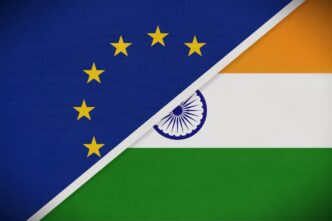Executive Summary
The Story So Far
Why This Matters
Who Thinks What?
The European Union is navigating a complex diplomatic challenge in its trade negotiations with India, as a long-standing dispute over the geographical indication (GI) of basmati rice continues to pose a significant hurdle. European Commissioner for Trade Maroš Šefčovič confirmed on September 12 that the basmati issue is on the agenda, with new discussions taking place in Brussels this week. The EU and India aim to finalize a comprehensive trade deal by the end of the year, a timeline reportedly influenced by the new tariff policies of the Trump administration, which are pushing both partners to strengthen trade ties.
Trade Deal Imperative
The urgency to secure a trade agreement between the EU and India has been heightened by global economic shifts. Both blocs are under pressure to establish new trade relationships, making the resolution of contentious issues like basmati rice’s origin critical for the broader deal, which encompasses areas from automotive markets to public procurement.
The Stakes of Geographical Indications
Geographical Indications are economically significant, designed to protect products whose quality or reputation is linked to their place of origin. The EU, with its rich artisanal and culinary heritage, holds the largest number of GIs globally, largely due to products from France, Italy, and Spain. In trade talks, Brussels seeks to protect its own products, such as French champagne and Italian Parmigiano Reggiano cheese, from counterfeiting in partner countries, while also acknowledging the GI interests of its trading partners.
A History of Joint Efforts and Division
Initially, India and Pakistan collaborated to protect basmati rice. In the late 1990s, they successfully challenged a US company, RiceTec, which had obtained a patent on basmati. This led to the revocation of the patent by the US Patent and Trademark Office in 2001. Subsequently, from 2004 to 2008, both nations worked together on a joint application to the European Commission for GI recognition, acknowledging their shared heritage over the rice from the Punjab region.
However, these joint efforts collapsed following the 2008 Mumbai attacks, which India attributed to Pakistani intelligence services. After years of deadlock, India unilaterally submitted a request for GI registration to the European Commission in 2018. The application described basmati as grown in the Indo-Gangetic plains, a region shared by India, Pakistan, Cambodia, and Nepal, including Punjab.
Pakistan formally opposed India’s application, viewing it as an attempt to gain exclusive use of the “basmati” term. After unsuccessful legal exchanges, Pakistan submitted its own GI request in 2023. This application notably included four districts of the disputed Kashmir region—Mirpur, Bhimber, Poonch, and Bagh—as basmati-growing areas.
EU’s Geopolitical Conundrum
The EU finds itself entangled in the broader geopolitical conflict between India and Pakistan, particularly concerning the territorial recognition of Kashmir. Matteo Mariano, a trademarks expert at Novagraaf law firm, noted that the Commission has avoided a “first come, first served” approach, choosing not to involve itself in the territorial disputes between the two nations.
While sources from both India and Pakistan deny seeking exclusive recognition for basmati, a common resolution remains elusive. The EU’s trade negotiations, which are extensive and cover a wide array of goods and services, are complicated by this sensitive issue.
Leveraging Trade for Resolution
Mariano suggested that the European Commission could potentially leverage the importance of the trade agreement for India to compel a joint registration by both India and Pakistan. This strategy would depend on the EU’s willingness to use the GI negotiations as a bargaining chip, potentially benefiting European companies by securing concessions from India. Commissioner Šefčovič has described Indian negotiators as “tough,” indicating the diplomatic skill required to navigate this complex issue.








